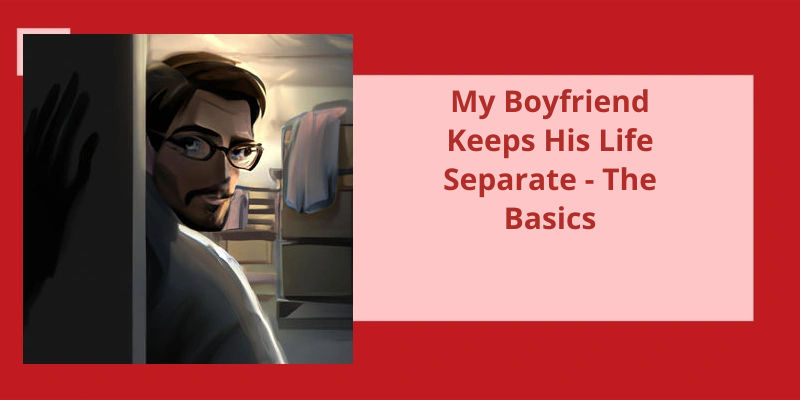The distinction between a close friend and a best friend is more than just a matter of semantics; it delves into the depth and significance of personal connections. Understanding the nuances between these two types of friendships can’t only help us navigate our relationships better but also allow us to appreciate the unique qualities and benefits each brings to our lives. In this article, we will explore the juicy tips that can help us differentiate and cultivate both types of friendships, providing insights into the roles they play, the levels of intimacy they offer, and the ways in which they enrich our lives. So whether you're curious about the characteristics that set these friendships apart or yearning to nurture and strengthen your existing connections, keep reading for an exploration of close friend versus best friend dynamics and the juicy tips to enhance these treasured relationships.
Which Is Better Close Friend or Best Friend?
When it comes to the debate of close friend vs best friend, it’s undeniable that the latter takes the highest position in the friendship hierarchy. While close friends are indeed important and play a significant role in our lives, best friends go above and beyond to provide unwavering support and loyalty. In times of hardships and obstacles, best friends are the ones who’re always there, ready to offer comforting words and a shoulder to lean on. Their commitment to our well-being is unparalleled.
They’ve an innate understanding of our needs and desires, and they’ll go to great lengths to fulfill them. From planning surprise parties to lending a listening ear or even just making us laugh, best friends are always ready to lift our spirits and bring joy into our lives. Their genuine care and effort make them invaluable and irreplaceable.
Their unwavering support, unconditional love, and selfless acts make them an indispensable part of our lives. They’re the ones who understand and accept us completely, and their presence brings immense happiness and comfort. In the friendship hierarchy, a best friend takes the highest position, forever engraving their mark in our journey.
It signifies a deep level of trust, love, and companionship, making them more like family than just friends. In text conversations, the term “best friend” is often used as a shorthand to express this special bond.
What Does Bestfriend Mean in Text?
Best friend is a term of endearment for ones closest and most cherished friend. It goes beyond just having a casual acquaintance or even a close friend.
When someone refers to another person as their best friend in a text message, they’re highlighting the sheer significance of their bond. It implies a level of trust, comfort, and understanding that surpasses ordinary friendships. This person is more than just a confidant; they’re the one you turn to when you’re happy, sad, excited, or in need of advice. They’re the person who can make you laugh when youre feeling down and who’ll always lend a listening ear.
It signifies that this person isn’t just a friend, but someone you consider family. They’re the one you trust implicitly, the one who knows your flaws and loves you anyway. This term in a text message carries a sense of warmth, loyalty, and a lifetime commitment to that friendship.
It’s an acknowledgment of the personal growth and experiences that have been shared, as well as a reassurance that this friendship will continue to thrive despite any challenges or obstacles.
Navigating the complexities of close friendships can sometimes blur the lines between platonic and romantic connections. Wondering whether close friends can fall in love is a common dilemma, as feelings can naturally evolve over time. However, delving into a romantic relationship with a best friend entails careful consideration, potential shifts in dynamics, and the need for open communication to ensure a healthy and fulfilling partnership.
Do Close Friends Fall in Love?
Close friends falling in love isn’t an uncommon phenomenon. When you spend so much time together, sharing stories, secrets, and emotions, it’s natural for romantic feelings to develop. However, deciding whether to act on these feelings can be quite challenging. On one hand, a romantic relationship with your close friend may be incredibly fulfilling, as it’s built on a foundation of trust and deep understanding. On the other hand, it can also introduce new dynamics into the relationship that could potentially jeopardize the friendship.
One important factor to consider is the potential shift in dynamics between you and your close friend. When transitioning from friends to romantic partners, the dynamic of the relationship changes drastically. Suddenly, the dynamics of your conversations, the boundaries of your personal lives, and even the frequency of your interactions may be altered. It’s crucial to have open and honest communication about the expectations and boundaries of this new romantic relationship. It may also be helpful to discuss how you’d navigate potential challenges or conflicts as romantic partners.
Sometimes, strong emotions can cloud our judgment and make us believe we’re in love when, in reality, it might just be infatuation or a fleeting crush. Taking the time to reflect on your feelings and talk to a trusted confidant or therapist can provide valuable insights and guidance during this complicated decision-making process.
Will this change impact your mutual friend group or social circles? How would it affect your other close relationships? It’s essential to think through the potential ripple effects and be prepared for the possible outcomes, both positive and negative.
It’s essential to prioritize open and honest communication, trust, and respect throughout this journey. While it can be scary and uncertain, a romantic relationship with your best friend has the potential to be an incredibly rewarding and fulfilling experience that strengthens the bond you already share. Just remember to approach this decision with care, patience, and a willingness to adapt to the changes that come with it.
Having established the distinction between casual and close friends based on emotional attachment and reliability, it’s essential to delve deeper into the distinguishing characteristics that set these two types of relationships apart.
What Is the Difference Between a Casual Friend and a Close Friend?
A casual friend is someone you may hang out with occasionally, often in a social setting like a party or a group outing. You may have some shared interests or common friends that bring you together, but your relationship doesn’t go beyond that. On the other hand, a close friend is someone you’ve a deeper connection with. You spend time together on a more regular basis, whether it’s grabbing coffee, going for a walk, or simply hanging out at each others homes. This regular interaction allows you to get to know each other better and build a strong bond.
When it comes to emotional attachment, casual friends don’t possess the same level of emotional intimacy as close friends. While you may enjoy their company, you may not feel comfortable opening up about your deepest feelings or personal struggles. In contrast, close friends provide a safe space where you can share your thoughts, fears, and dreams without the fear of judgment.
In terms of dependability, casual friends may be there for you in times of fun and enjoyment, but they may not be the first person you turn to in times of need. A close friend, however, is someone you can rely on. They’re there to lend a helping hand when youre facing a difficult situation, offer advice and support, and simply be a listening ear when you need to vent.
The Role of Trust in Close Friendships and How It Differs From Casual Friendships
- The importance of trust in close friendships.
- How trust is built and maintained in close friendships.
- The impact of trust on the depth and intimacy of close friendships.
- Differences in trust levels between close friendships and casual friendships.
- How trust affects the level of vulnerability and openness in close friendships.
- The role of trust in providing emotional support and understanding in close friendships.
- Trust as a foundation for loyalty and reliability in close friendships.
- The significance of trust in sharing secrets and personal experiences in close friendships.
- Trust as a catalyst for growth and personal development in close friendships.
- The challenges and potential breaches of trust in close friendships and how to overcome them.
A best friend is someone who possesses a unique set of qualities that make them indispensable in our lives. They’re respectful, forgiving, and always there to support us. A best friend is someone we can rely on, with their thoughtfulness and dependability. They’re also great listeners, understanding us like no one else can. Sharing our sense of humor and loving us unconditionally, a best friend is a constant source of comfort and companionship.
Who Can Be Called a Best Friend?
When it comes to defining a best friend, the qualities they possess are essential. Firstly, a best friend should have respect. They treat you with kindness, acknowledge your boundaries, and support your personal growth. They never belittle or demean you, but rather uplift and encourage your aspirations. Secondly, forgiveness is a crucial quality. Best friends understand that everyone makes mistakes and are willing to forgive, allowing the relationship to grow stronger.
Moreover, support is vital in a best friend. They’re there to celebrate your accomplishments and provide a shoulder to lean on during tough times. They offer guidance and encouragement, being your biggest cheerleader in life. Additionally, being dependable is important. A best friend is someone you can rely on in both good times and bad. They’re trustworthy and you never have to question their loyalty.
Furthermore, thoughtfulness is a quality that sets apart a best friend from others. They remember the little things that matter to you, such as your favorite color or your love for a specific band. They show their care and affection through small gestures that hold great meaning. Additionally, a best friend is a good listener. They lend an ear when you need to vent, offering advice or simply being a sounding board. They validate your emotions and make you feel heard and understood.
Lastly, a best friend shares your humor. They make you laugh until your stomach hurts, creating inside jokes that only the two of you understand. They’ve a similar sense of humor and can turn even the most mundane situations into something hilarious. Most importantly, a best friend loves you for who you are, flaws and all. They see your true self and accept you unconditionally. Their love remains steadfast, even during times when you may not be at your best.
Supporting Each Other’s Personal Growth as Best Friends
- Encouraging and cheering each other on
- Listening without judgment
- Providing honest feedback
- Sharing personal goals and aspirations
- Offering emotional support in tough times
- Celebrating achievements together
- Helping each other identify strengths and weaknesses
- Sharing resources and knowledge
- Providing a safe space to be vulnerable
- Inspiring and motivating each other
In our social circles, we often come across people who we consider friends, but there’s a distinct difference between a friend and a best friend. While friends may not prioritize loyalty and may distance themselves from situations involving criticism, best friends hold loyalty in high regard and will unconditionally stand up for you when you need them the most. Their unwavering support and defense set them apart from mere acquaintances, making them an invaluable presence in our lives.
What Is the Difference Between a Friend and a Best Friend?
What’s the difference between a friend and a best friend? It lies in the depth of their loyalty and commitment. While friends may simply enjoy your company and engage in casual conversations, it’s the best friends who truly understand the value of loyalty and prioritize it highly in their relationship with you. When rumors start swirling and people begin to talk negatively about you, friends might shy away, hesitant to get involved or take a stand. They may not necessarily defend you or feel compelled to support you in difficult times.
However, best friends are an entirely different breed. They’ve a deep-rooted understanding of the significance of loyalty and will go to great lengths to ensure your well-being and defend your honor. When others speak ill of you, a best friend won’t hesitate to stand up for you, even if it means facing confrontation or criticism themselves. They’ve an unwavering commitment to your friendship that surpasses superficial concerns and societal pressures.
They’re the ones who’ll fiercely defend you, stand up for you, and support you through thick and thin, showcasing the remarkable depth of their loyalty and commitment.
The Importance of Trust in Friendship: Discuss the Role of Trust in a Friendship and How It Differs Between Friends and Best Friends. Explore How Trust Is Built and Maintained in Friendships.
- Trust is an essential element in any friendship.
- It plays a crucial role in establishing and maintaining a strong bond between friends.
- In a friendship, trust is the foundation upon which all other aspects are built.
- Unlike casual acquaintances, friends rely on each other for support and understanding.
- Without trust, these aspects of a friendship would be impossible to achieve.
- Trust allows friends to share their deepest thoughts, feelings, and secrets with each other.
- It creates a safe space where they can be vulnerable, knowing that their confidences will be respected.
- Being able to trust a friend implicitly fosters a sense of security and comfort in the relationship.
- With trust, friends feel confident in relying on each other during times of need.
- Trust also allows friends to be honest with one another, even when the truth may be difficult to hear.
- This honesty is crucial in resolving conflicts and avoiding misunderstandings.
- Best friends often have a deeper level of trust compared to regular friends.
- They’ve formed a bond based on years of shared experiences and unwavering loyalty.
- Best friends are usually aware of each other’s strengths, weaknesses, and fears.
- They can anticipate each other’s needs and provide support without hesitation.
- Building trust in a friendship takes time, effort, and consistency.
- It begins with small acts of reliability and confidentiality.
- As friends demonstrate trustworthiness, it deepens the bond between them.
- Consistently keeping promises, maintaining confidentiality, and being reliable are all crucial aspects of building trust.
- Maintaining trust in a friendship requires ongoing effort and effective communication.
- Addressing any issues or breaches of trust openly and honestly is vital.
- Friends should be willing to forgive and make amends when trust is broken.
- By valuing and prioritizing trust, friendships can flourish and become lifelong connections.
Conclusion
In conclusion, navigating the dynamics of close friends and best friends can be a complex journey filled with both challenges and rewards. While close friends may offer a sense of comfort and familiarity, best friends bring an unparalleled depth of connection and support. Understanding the crucial distinctions between the two can help us manage our expectations and foster healthier relationships. Ultimately, the key lies in open communication, mutual understanding, and always cherishing the unique bond we share with both our close friends and best friends. So, let’s treasure the precious friendships we have, making sure to nurture them with love, respect, and shared adventures, creating a support network that enriches our lives in countless ways.






